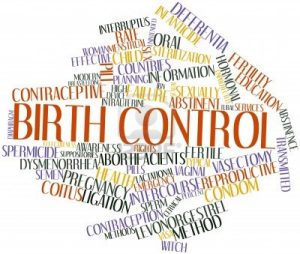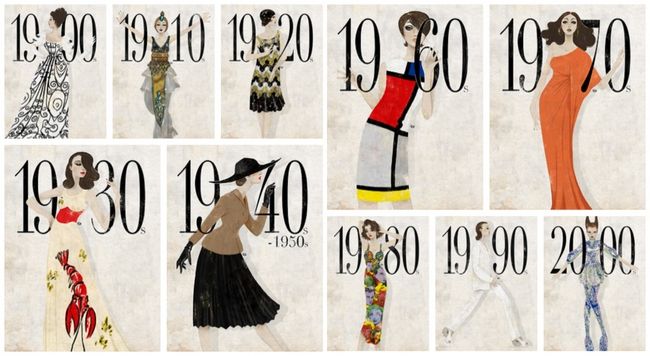100 Years Of Progress For Women; The Women’s Suffrage Movement
Through time women have gone through many things from staying at home, to working, and fighting for their rights. Women have always wanted gender equality and have made progress from the 20th century until present time. Progress means forward or onward movement to a destination. Women have quickly made changes in time but there has been moments where they have taken steps back because of certain events. Women haven’t been treated equally as men which has cause them to have gone to extreme measures in order to be heard and have equality.
The Worldwide Women’s Suffrage movement.
(1916-1940)

Women’s suffrage was a fight for the right of women to vote in elections. Limited voting rights were gained by women in Finland, Iceland, Sweden, and some Australian colonies. It also was that women couldn’t run in elections. There was a women’s suffrage movement that began in 1848 through the leadership of Susan B. Anthony. They created two organizations called “The National American Woman Suffrage Association” and “The National Woman’s party” in order to convince Wilson and congress to pass a woman’s suffrage amendment. In 1920 because of both of their efforts the 19th amendment was ratified which granted the right for women to vote.
The equal protection of women through human rights enforcement
(1940-1960)
Women entered the workforce in World war 2 because men enlistment left a lot of openings in the industrial labor force. From 1940 to 1945 female workers increased in the U.S Workforce and by 1945 nearly one out of every four married women worked outside of home. There was a poster created called “ Rosie The Riveter” which illustrated working women in the world war 2 era. The poster became very famous. Although women were working there pay was 50 percent of what male workers made. In the 1950’s women were put back in the kitchen because the war ended and men came back and married and had children so women had to stop working and go back home and take care of their home. In the 1960’s women couldn’t have credit cards, serve on a jury, go on the birth control pill, or experience equality in the workplace. In 1963 women in the workplace earned 59 cents for every dollar that men earned and were kept out of more lucrative professional positions. In 1964 through Congress, an amendment made it illegal to discriminate on the basis of gender as well as race. When the amendment was not taken seriously regarding women in the workplace, the National Organization of Women was founded to enforce full equality for women in truly equal partnership with men.
In article 16 of The United Nations Universal Declaration of Human Right it says that women “without any limitation due to race, nationality or religion, have the right to marry and to found a family”. In the Universal Declaration of Human Rights women and children are in the same level internationally and have the same rights as men.
The United nations has also created an organization called “UN women” which specializes in gender equality and helps protect the voices of those women that want rights as men. It also helps defend the rights of women on the declaration of human rights. Gender equality is a fundamental human right. Un women was created to empower women. Because of the UN a women in a small town called Gujarat has been elected for the first time as head of the village council. UN Women has also helped to fund a union of domestic housekeepers to fight for better working conditions. Many maids come from abroad to work in Chile, where they face working 15-hour days and are at high risk of rape by young Chilean men. The universal declaration of rights also reinforced that there could be no distinction or discrimination on gender basis.
Women as political leaders and right to abortion and birth control
(1970s – present)

Many women have been some form of leaders throughout the world. For example, In their town, country , state but in some way women have made it to the top and have made their way into important office and put in important positions to make an impact and help and share their political views and ideas to help run and create better things. For example Eleanor Roosevelt was the wife of the 32nd president, Franklin Roosevelt. She was an articulate, vocal, candid political, and civil rights activist. She is famous for her powerful quote “ Women are like tea bags, we don’t know our strength until we are in hot water!” She also was part of the UN commission for human rights. Another example is Rosa Parks. She was a black women who refused to give up her seat to a white man because of racism and was arrested. For a year long there was a black bus boycott and she is now known as “first lady of civil rights”. In 1996, She was awarded the presidential medal of freedom.
Birth control is a way to prevent pregnancy and abortion is the termination of a human pregnancy. Women have not always had the right to birth control or abortion. When women become pregnant, sometimes the father isn’t responsible and decides to walk away and leave all the responsibility to the women. For that reason some women decide to have an abortion for personal issues. In 1960 the birth control pill was introduced as a contraceptive. It was their choice whether they wanted to take it or not. The fight for the freedom of women to use contraceptive was hard. In the 1960 many states prohibited the sales of contraceptives. Now they have set up clinics to help women get free birth control and also give them Medicare to help them. In 1916 a woman named Margaret Sanger opened the first birth control clinic then was arrested for 30 days. After she got out she reopened her clinic and suffered more prosecutions and jail time. In 1961 the first contraceptive pill was approved by the food and drug administration. Now many birth control methods exist and researches are still planning on learning more ways to prevent pregnancy.
In conclusion, Women have had a tough time throughout history, from fighting, to being able to work, to being political leaders and fighting their right for birth control. It has not been easy for us even today there is still a lot of controversy on women.
https://www.youtube.com/watch?v=pSbbePhIyRY
http://http://www.history.com/topics/world-war-ii/rosie-the-riveter
http://www.nwhm.org/online-exhibits/progressiveera/suffrage.html
http://www.cnn.com/2014/08/07/living/sixties-women-5-things/
http://www.un.org/en/universal-declaration-human-rights/

